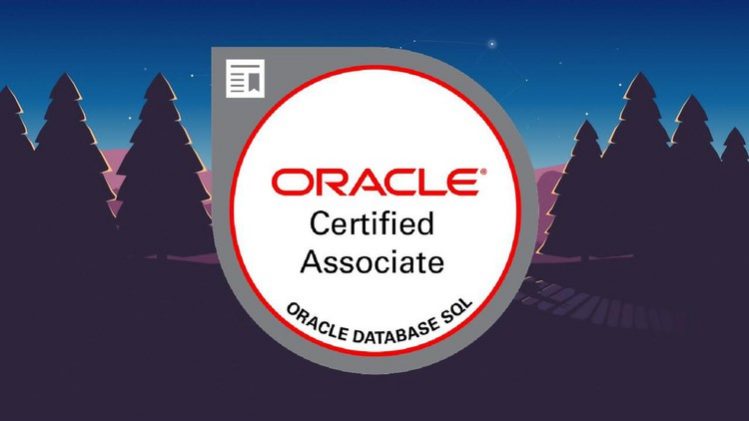
Database Developer planning to take 1Z0-071 (OCA) Certification
Mock test helps to find the weak area/Gaps so that you work on it and score well
Able to solve certification exam questions.
Able to understand exam patterns
ENROLL & PREPARE NOW YOU WON’T REGRET IT !
The official knowledge requirements for the exam are reviewed routinely to ensure that the content has the latest requirements incorporated in the practice questions. Updates to content are often made without prior notification and are subject to change at any time.
Most questions have detailed explanations and links to reference materials to support the answers which ensures accuracy of the problem solutions.
The questions will be shuffled each time you repeat the tests so you will need to know why an answer is correct, not just that the correct answer was item “B” last time you went through the test.
What’s covered in the Practice Tests:
Relational Database concepts
- Explaining the theoretical and physical aspects of a relational database
- Relating clauses in SQL Select Statement to Components of an ERD
- Explaining the relationship between a database and SQL
Retrieving Data using the SQL SELECT Statement
- Using Column aliases
- Using The SQL SELECT statement
- Using concatenation operator, literal character strings, alternative quote operator, and the DISTINCT keyword
- Using Arithmetic expressions and NULL values in the SELECT statement
Restricting and Sorting Data
- Applying Rules of precedence for operators in an expression
- Limiting Rows Returned in a SQL Statement
- Using Substitution Variables
- Using the DEFINE and VERIFY commands
- Sorting Data
Using Single-Row Functions to Customize Output
- Manipulating strings with character functions in SQL SELECT and WHERE clauses
- Performing arithmetic with date data
- Manipulating numbers with the ROUND, TRUNC and MOD functions
- Manipulating dates with the date function
Using Conversion Functions and Conditional Expressions
- Applying the NVL, NULLIF, and COALESCE functions to data
- Understanding implicit and explicit data type conversion
- Using the TO_CHAR, TO_NUMBER, and TO_DATE conversion functions
- Nesting multiple functions
Reporting Aggregated Data Using Group Functions
- Restricting Group Results
- Creating Groups of Data
- Using Group Functions
Displaying Data from Multiple Tables
- Using Self-joins
- Using Various Types of Joins
- Using Non equijoins
- Using OUTER joins
- Understanding and Using Cartesian Products
Using Subqueries to Solve Queries
- Using Single Row Subqueries
- Using Multiple Row Subqueries
- Update and delete rows using correlated subqueries
Using SET Operators
- Matching the SELECT statements
- Using the ORDER BY clause in set operations
- Using The INTERSECT operator
- Using The MINUS operator
- Using The UNION and UNION ALL operators
Managing Tables using DML statements
- Managing Database Transactions
- Controlling transactions
- Perform Insert, Update and Delete operations
- Performing multi table Inserts
- Performing Merge statements
Managing Indexes Synonyms and Sequences
- Managing Indexes
- Managing Synonyms
- Managing Sequences
Use DDL to manage tables and their relationships
- Describing and Working with Tables
- Describing and Working with Columns and Data Types
- Creating tables
- Dropping columns and setting column UNUSED
- Truncating tables
- Creating and using Temporary Tables
- Creating and using external tables
- Managing Constraints
Managing Views
- Managing Views
Controlling User Access
- Differentiating system privileges from object privileges
- Granting privileges on tables
- Distinguishing between granting privileges and roles
Managing Objects with Data Dictionary Views
- Using data dictionary views
Managing Data in Different Time Zones
- Working with CURRENT_DATE, CURRENT_TIMESTAMP,and LOCALTIMESTAMP
- Working with INTERVAL data types
The Oracle Database Foundations Certified Foundations Associate exam does not assume any hands-on experience with Oracle Database products. However, to be successful, you need a basic understanding of the different types of database models and components. In addition, you need to know how tables are designed and the types of relationships between tables to manipulate data via SQL queries as well as familiarity with mapping of ERD model into relations.
These practice tests will help you prepare for the Oracle Database SQL 1Z0-071 Practice Exam but should not be the only training source you use.






